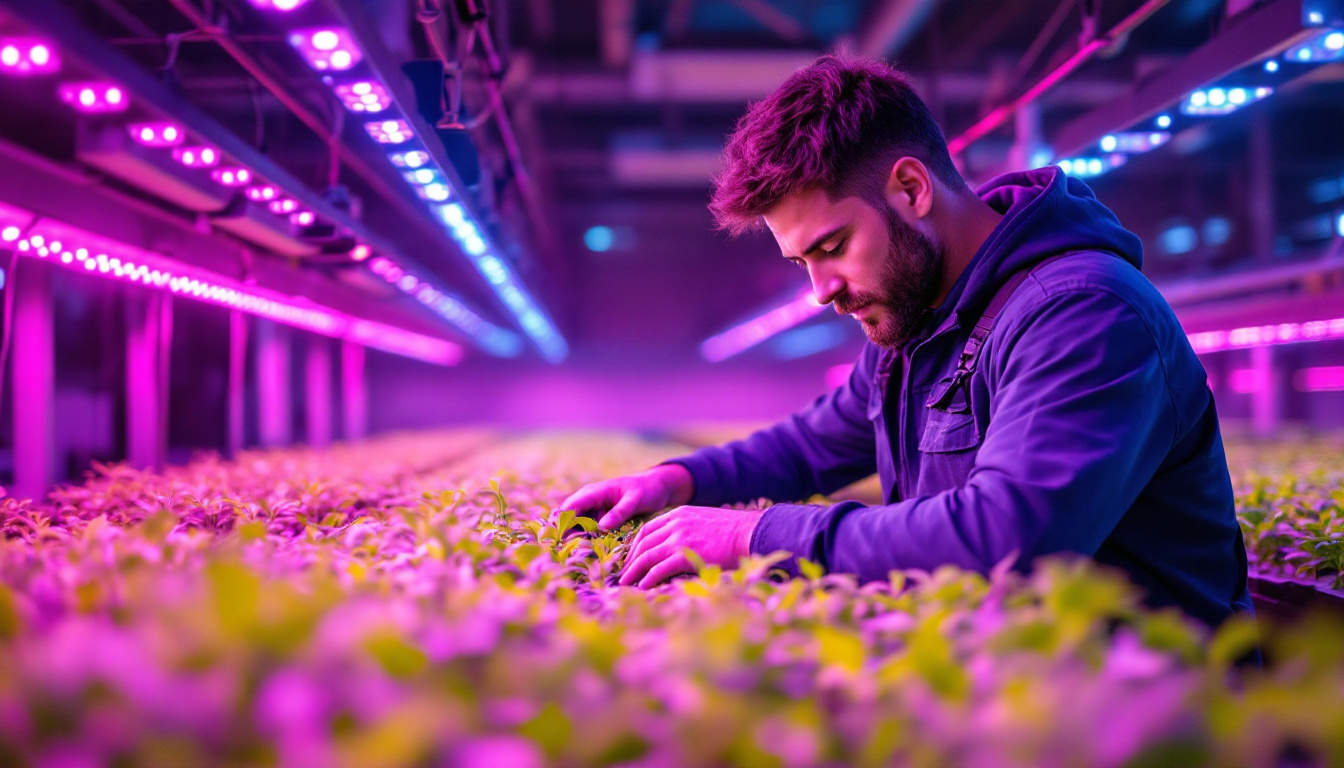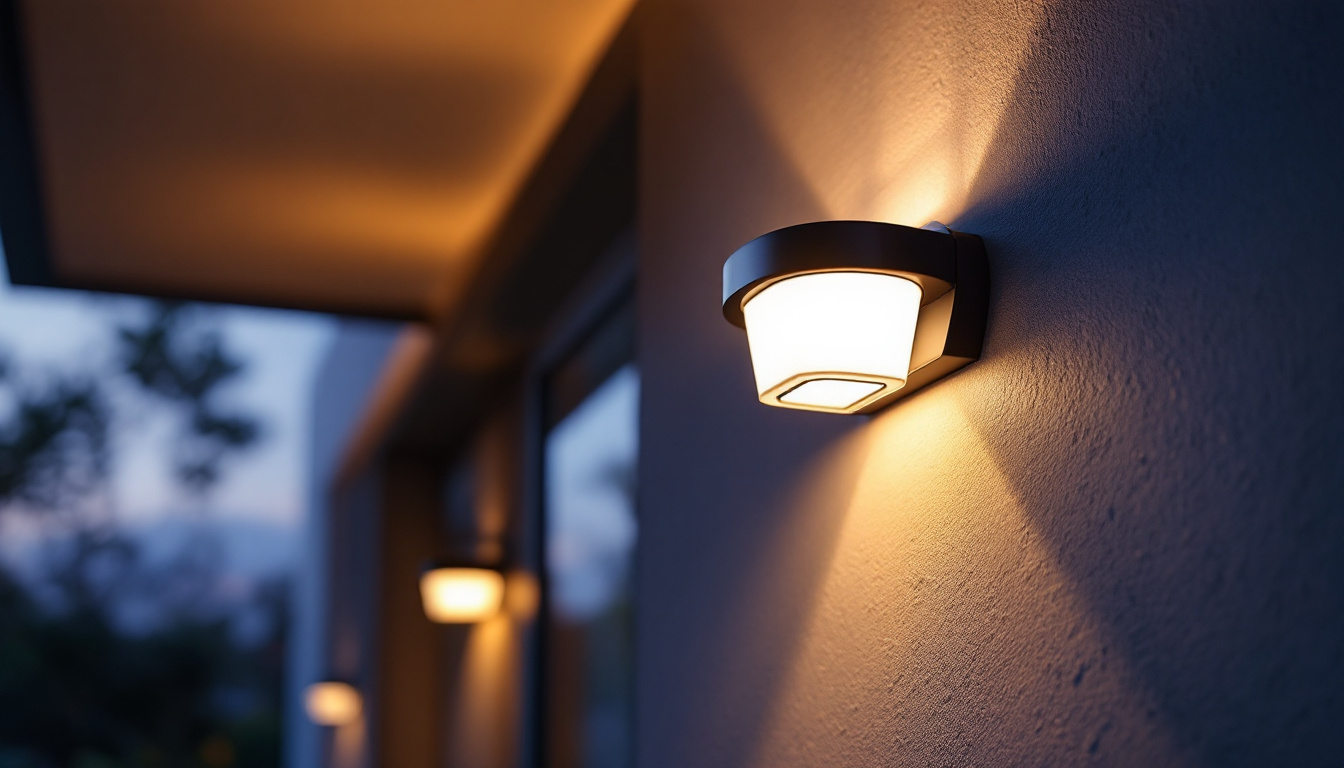
In the ever-evolving world of agriculture and horticulture, the integration of innovative technologies has become paramount. Among these advancements, hydroponic farming stands out as a sustainable and efficient method of cultivation. For lighting contractors, understanding the nuances of hydro farms is essential. This article delves into why every lighting contractor should be well-versed in hydro farm systems and the unique lighting requirements they entail.
Hydroponic farming has gained significant traction in recent years, driven by the need for sustainable food production methods. This soil-less cultivation technique allows for the growth of plants in nutrient-rich water solutions, making it possible to grow crops in urban environments and areas with poor soil quality. The method has roots that trace back to ancient civilizations, but it has evolved dramatically with advancements in technology and agricultural science, making it more accessible and efficient than ever before.
As urbanization continues to rise, so does the demand for locally grown produce. Hydroponic farms can be set up in greenhouses, warehouses, or even shipping containers, allowing for year-round cultivation. This flexibility not only reduces transportation costs but also minimizes the carbon footprint associated with traditional farming practices. Furthermore, urban hydroponic farms can contribute to food security in densely populated areas, providing fresh produce to communities that may otherwise rely on imported goods, which can be subject to spoilage and price fluctuations.
One of the primary advantages of hydroponic farming is its efficient use of resources. Water consumption is significantly reduced compared to traditional farming methods, as hydroponic systems recirculate water. Additionally, the controlled environment allows for optimal growth conditions, resulting in faster crop cycles and higher yields. For instance, leafy greens can be harvested in a matter of weeks rather than months, enabling farmers to produce multiple crops in a single year. This rapid turnover not only boosts profitability but also helps meet the increasing consumer demand for fresh, organic produce.
Moreover, hydroponics eliminates the need for pesticides and herbicides, as the controlled environment minimizes pest infestations. This leads to healthier produce and a more sustainable farming practice, which is increasingly appealing to environmentally-conscious consumers. The technology also allows for precise control over nutrient delivery, ensuring that plants receive exactly what they need for optimal growth. This precision agriculture approach not only enhances crop quality but also contributes to reduced waste, as excess nutrients can be recycled back into the system. As research continues to advance, hydroponic systems are becoming more sophisticated, incorporating automation and data analytics to further improve efficiency and yield, paving the way for a new era in agriculture.
Lighting is a critical component of hydroponic farming, as it directly influences plant growth and development. Unlike traditional farming, where sunlight is the primary light source, hydroponic systems often rely on artificial lighting to provide the necessary spectrum for photosynthesis.
Understanding the specific lighting needs of various crops is essential for lighting contractors. Different plants require different light spectra and intensities, making it crucial to tailor lighting solutions to the specific needs of each hydroponic farm. This customization not only ensures optimal growth but also helps in managing energy costs, which can be a significant factor in the overall profitability of hydroponic operations.
There are several types of grow lights available on the market, each with its own advantages and disadvantages. LED lights have gained popularity due to their energy efficiency, long lifespan, and ability to emit specific light spectra. They can be tailored to meet the needs of various plants, making them a versatile choice for hydroponic systems. Additionally, advancements in LED technology have led to the development of full-spectrum lights that can mimic natural sunlight, further enhancing plant growth and reducing the need for multiple light sources.
Fluorescent lights, particularly T5 and T8 tubes, are also commonly used in hydroponic farms. They are less expensive than LEDs and provide a good spectrum for seedling growth. However, they are less energy-efficient and have a shorter lifespan compared to their LED counterparts. Moreover, fluorescent lights tend to emit more heat, which can necessitate additional cooling measures in a hydroponic setup, potentially increasing operational costs.
The light spectrum plays a crucial role in plant growth. Plants primarily utilize blue and red wavelengths for photosynthesis, making it essential for lighting contractors to understand how to optimize light spectra for different growth stages. For instance, blue light promotes vegetative growth, while red light encourages flowering and fruiting. Understanding these nuances allows hydroponic farmers to create specific lighting schedules that can simulate seasonal changes, thereby optimizing growth cycles and harvest times.
By customizing the light spectrum, lighting contractors can help hydroponic farmers maximize their yields and improve the quality of their produce. This knowledge not only enhances the contractor’s skill set but also positions them as valuable partners in the hydroponic farming industry. Furthermore, as the demand for locally sourced and sustainably grown produce continues to rise, the role of effective lighting becomes even more critical, driving innovation and research in the field. With ongoing advancements in technology, the future of hydroponic lighting promises to be more efficient and tailored than ever before, paving the way for a new era of agriculture that can meet the challenges of a growing global population.
As energy costs continue to rise, energy efficiency has become a top priority for hydroponic farms. Lighting contractors play a vital role in helping farmers choose the most energy-efficient lighting solutions. By recommending LED systems or other energy-saving technologies, contractors can significantly reduce operational costs for their clients.
Moreover, energy-efficient lighting systems can lead to faster return on investment for hydroponic farms. Although the initial cost of LED lights may be higher, their longevity and reduced energy consumption often result in substantial savings over time.
Incorporating smart lighting solutions into hydroponic farms is another way lighting contractors can add value. Smart lighting systems allow farmers to control light intensity, duration, and spectrum remotely, optimizing growth conditions based on real-time data. This level of control can lead to increased yields and improved resource management.
By staying abreast of technological advancements in smart lighting, contractors can position themselves as experts in the field, helping their clients implement cutting-edge solutions that enhance productivity and sustainability.
For lighting contractors, a solid understanding of plant biology is essential when working with hydroponic systems. Knowledge of how plants respond to different lighting conditions can help contractors design more effective lighting solutions tailored to specific crops.
Different plants have varying light requirements, and understanding these nuances can lead to better growth outcomes. Contractors who can provide insights into plant biology will not only enhance their credibility but also foster stronger relationships with hydroponic farmers.
Photosynthesis is the process by which plants convert light energy into chemical energy. Understanding this process is crucial for lighting contractors, as it directly impacts the design and implementation of lighting systems. Factors such as light intensity, duration, and spectrum all play a role in optimizing photosynthesis.
By educating clients on the importance of these factors, lighting contractors can help farmers create ideal growing conditions that lead to healthier plants and higher yields. This knowledge not only enhances the contractor’s reputation but also contributes to the overall success of the hydroponic farm.
Establishing strong relationships with hydroponic farmers is vital for lighting contractors. By understanding the unique challenges and opportunities within the hydroponic farming industry, contractors can position themselves as trusted partners rather than just service providers.
Engaging with farmers through workshops, seminars, or one-on-one consultations can help contractors gain insights into the specific needs of their clients. This collaborative approach fosters loyalty and encourages farmers to turn to the contractor for future lighting needs.
Ongoing support and education are essential components of a successful relationship between lighting contractors and hydroponic farmers. By offering training sessions on lighting systems, maintenance, and best practices, contractors can empower farmers to make informed decisions about their lighting solutions.
Additionally, providing resources such as guides, articles, or access to online forums can help farmers stay updated on the latest trends and technologies in hydroponic farming. This commitment to education not only enhances the contractor’s reputation but also contributes to the overall success of the hydroponic farm.
The hydroponic farming industry presents a wealth of opportunities for lighting contractors willing to invest time and effort in understanding its unique requirements. By becoming knowledgeable about the specific lighting needs of hydro farms, contractors can position themselves as indispensable partners in the agricultural sector.
From selecting the right lighting systems to providing ongoing support and education, lighting contractors have the potential to make a significant impact on the success of hydroponic farms. As the demand for sustainable food production continues to grow, so too does the need for skilled lighting professionals who can help farmers optimize their operations.
In summary, embracing the hydroponic farming trend not only enhances the contractor’s skill set but also opens doors to new business opportunities. By staying informed about the latest advancements in lighting technology and plant biology, lighting contractors can ensure they remain at the forefront of this dynamic industry.
Ready to enhance your hydroponic farming projects with superior lighting solutions? Look no further than LumenWholesale. Our commitment to quality and affordability ensures that you receive the best value in spec-grade lighting products. With our extensive selection, you can find the perfect lighting systems to optimize plant growth and maximize yields. Say goodbye to inflated markups and hello to hassle-free bulk buying with free shipping. Elevate your hydroponic farm’s potential today and experience the difference with Wholesale Lighting at the Best Value from LumenWholesale.

Discover essential tips and innovative strategies for lighting contractors in our comprehensive guide to outdoor light fixtures.

Discover how solar exterior sconces can be a game-changer for lighting contractors looking to win more bids.

Discover the insider secrets lighting contractors use to master lamp dimming switches.

Discover essential tips and guidelines for lighting contractors in our comprehensive guide on outlet electrical work.